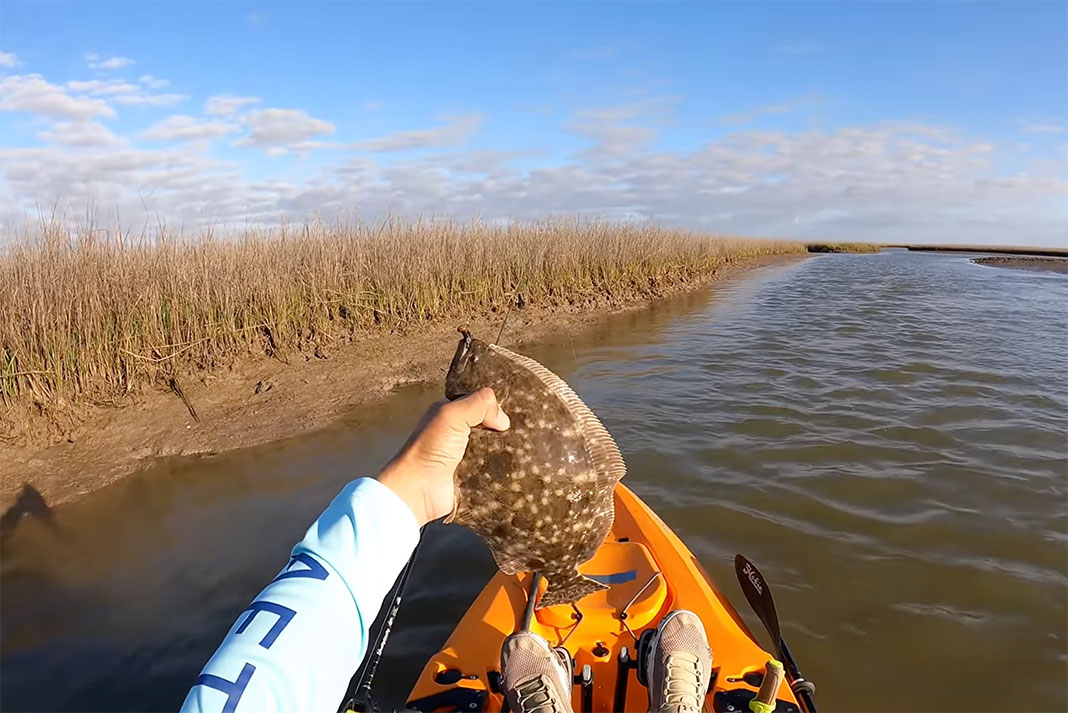Texas coastal marshes can be a great spot to track down trophies at low tide, according to MDLR Fishing’s Mark DeLaRosa, but accessing them is no cakewalk. “The inshore waters are known for leaving you high and dry,” he warns. “If you don’t monitor the tides you could find yourself stranded in the soft mud with no way to get out.” Will the experienced angler avoid getting bogged down?
Dangers of Marsh Fishing During Low Tide
DeLaRosa hit the bayou with fellow YouTuber Ranell Roy from Fish & Trips, who reported an average water depth of less than 12 inches for the trip. DeLaRosa spent most of the day fishing a bottom bouncer while Roy worked a paddletail. “I’ve got to make sure that I hit the soft mud bottom right up against the oysters,” DeLaRosa said, “making an effort to retrieve very slow” despite the warming water.

His first catch was a small flounder from an oyster bed, followed by a puppy drum. Another flounder exhibited lockjaw as it refused to give the lure back. “I was telling some of the guys at the fishing show about them holding on to the lures longer than…they should,” DeLaRosa narrated. “Dude, let it go!”
Don’t be a stick-in-the-mud
The bite slowed down as the day progressed and DeLaRosa admitted it was a chore to navigate through the skinny water. At one point, both anglers struggled to stay afloat while poling through the muddy trench of an unfortunate prop scar.
Particularly for a pedal kayak, the conditions were tough. DeLaRosa worried about his brand new MirageDrive, which he said “is talking to me like, ‘Please don’t ever take me through that skinny stuff again.’ Marsh mud will ruin just about anything, so will the salt water.”
So make sure you time the tides carefully if you plan to visit the coastal marshes for yourself. As DeLaRosa notes, you should keep in mind the lag time for local buoys. For a bit more leeway, choose a low-draft craft like an inflatable boat or SUP, or maybe take a beater boat just in case.


Good tips – can’t wait to get out this summer!! I have the itch bad. Thanks.